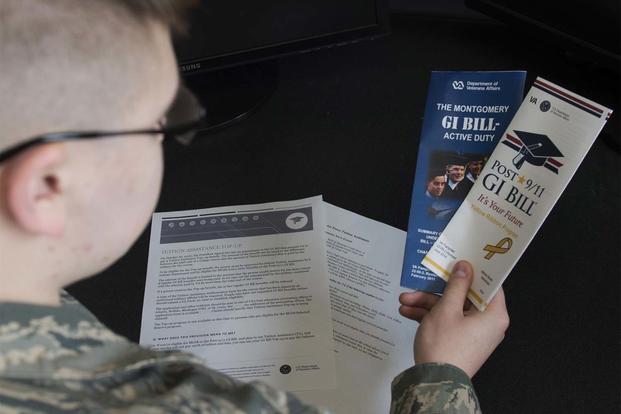The House Veterans Affairs Committee abruptly postponed a hearing this week to consider a draft proposal to expand GI Bill education benefits by imposing what the Veterans of Foreign Wars called a "tax on the troops."
The hearing by the panel's Subcommittee on Economic Opportunity scheduled for Thursday was to have considered more than a dozen proposals for enhancing and protecting GI Bill benefits into the future.
However, one item calling for new recruits to pay $100 a month for up to two years for GI Bill eligibility drew fire from the VFW and committee Democrats. Without explanation, the committee postponed the hearing late last Friday.
"With U.S. military operations expanding around the world, asking our troops to pay for their own benefits while we are still engaged in conflict sends the wrong signal and is the wrong thing to do," said Rep. Tim Walz of Minnesota, the committee's ranking Democrat.
"While $100 a month might not seem like a lot to a member of Congress, it certainly does when you're a private taking home less than $1,500 per month," Walz said in a statement.
The monthly $100 deduction from new recruits is expected to raise $3 billion in the first 10 years, which would then be used to expand benefits, according to the committee.
In a statement to CQ Roll Call, committee chairman Rep. Phil Roe, a Tennessee Republican, said the extra money would "preserve GI Bill benefits for generations to come."
"The legislation we are working on with veterans and stakeholders would provide a long-overdue increase in resources so that the spouses and children of our wounded and fallen heroes, as well as reservists, Guardsmen and Purple Heart recipients, can pursue the educational opportunities that they deserve," he said.
VFW National Commander Brian Duffy said Roe has misjudged what the GI Bill is all about.
"This new tax on our troops is absurd," Duffy said. The GI Bill, and other military and veteran benefits such as health care, are earned through honorable service and not through out-of-pocket fees, he said.
"Congress' focus should be on defeating our enemies and ending the war, not cutting the benefits of those who are fighting it," Duffy said.
Other veterans service organizations said the $100-per-month proposal should be given consideration. To cut off discussion before the merits could be considered would be shortsighted, said Will Hubbard, vice president of government affairs at Student Veterans of America.
SVA sees the proposal for payments by new recruits as a way to "protect the long-term viability" of the GI Bill, Hubbard said. Troops would then be vested, much like Social Security, and future legislators would be far less likely to consider cuts, he added.
"This is a great benefit," Hubbard said of the GI Bill. "We want to keep it around forever. It would be irresponsible not to protect this for future generations."
-- Richard Sisk can be reached at Richard.Sisk@Military.com.




























